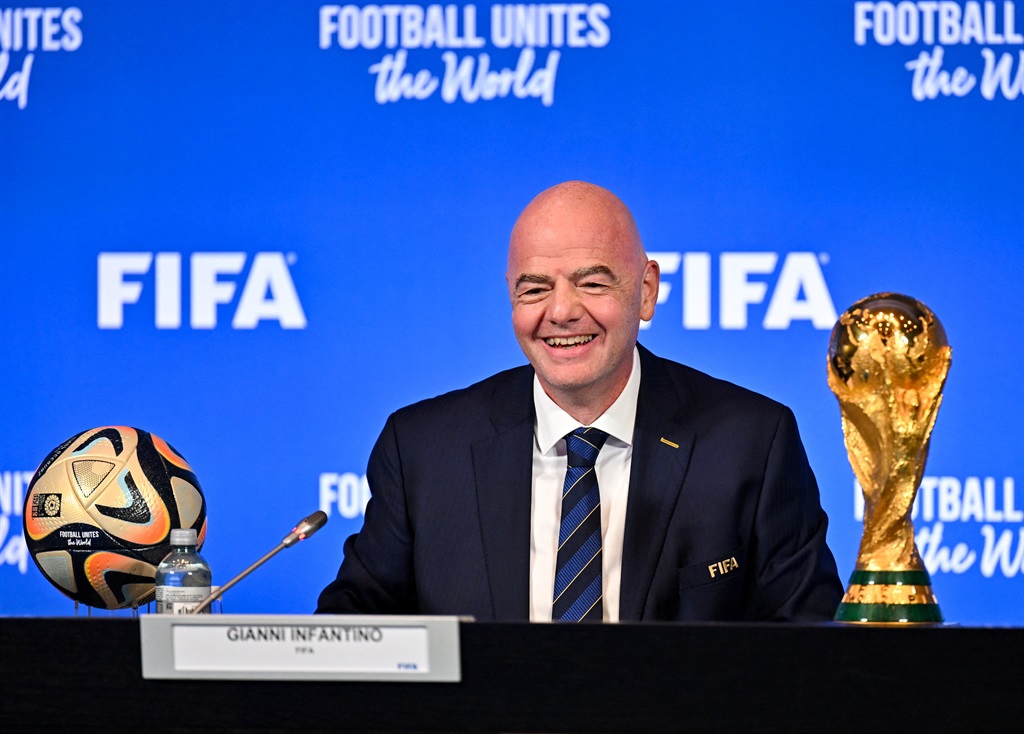
Six countries. Five time zones. Three continents. Two different seasons. One World Cup.
The proposed plans for the 2030 tournament - to be held in South America, Africa and Europe - are difficult to imagine as a reality.
It will be the first time a World Cup has been played on more than one continent - 2002 was the only previous event with more than one host in neighbouring countries South Korea and Japan.
That will change when the USA, Mexico and Canada host in 2026 - but that will not match the scale of the 2030 World Cup.
Spain, Portugal and Morocco have been named as co-hosts, yet the opening three matches will take place in Uruguay, Argentina and Paraguay to mark the World Cup’s centenary.
READ: Former Bafana coaches bemoan lack of development and call for action
But how will it all work? And what are the likely implications for players and fans?
BBC Sport takes a look at the key issues.
Can a single country stage a 48-team World Cup?
Uruguay, Paraguay and Argentina will each host a single game at the start of the tournament to mark 100 years since the inaugural event in Montevideo.
The Uruguayan capital will stage the opening game in 2030, with matches in Argentina and Paraguay to follow before the rest of the 48-team tournament takes place in north Africa and Europe.
It means once those early fixtures are complete, the tournament will be split between three nations - as is planned for the 2026 World Cup.
The World Cup will be expanded to host 48 teams for the first time when it is staged across 16 host cities in the US, Mexico and Canada.
That, along with Fifa’s decision to retain the four-team group format, will mean the number of matches increases from 80 to 104, alongside the introduction of a new last-32 stage.
While only one of 22 previous World Cups has had more than one host nation, the increased scale of the tournament means multi-nation bids may become more attractive to prospective bidders.
Will it really be in two seasons?
The change of hemispheres means some teams could find themselves in the bizarre scenario of playing in two different seasons at the same World Cup.
• Morocco ????, Portugal ???? and Spain ???? bid is the sole candidate to host 2030 @FIFAWorldCup.
— FIFA (@FIFAcom) October 4, 2023
• Centenary celebration and celebratory games to take place in Uruguay ????, Argentina ???? and Paraguay ????.
• Member associations from AFC and OFC invited to bid for the 2034 edition. pic.twitter.com/vr2zXTn44m
Those who will feature in one of the opening three matches in South America before resuming the rest of their tournament in Europe or north Africa would switch from winter to summer in a matter of days.
In June, Uruguay experiences cool average temperatures of between 8C and 15C in winter, while at the same, time the temperature in Morocco could be above 30C.
Neighbouring Argentina sees similar ranges to Uruguay while, to the north, Paraguay has a warmer average high of 23C.
But that is still far cooler than the summer heat expected in parts of Spain and Portugal which, like Morocco, have average daily maximum temperatures of about 35C by July.
What about issues around travel, scheduling and the environment?
Further details will be revealed in due course, but it is clear there will be significant extra travel required for all involved - including fans hoping to follow their team.
Any planning for the event will have to be put on hold until information around host cities and schedules is released. When it is, the movement required between continents and countries could prove very costly.
READ: Safa to meet with PSL over Sundowns' African Football League withdrawal
The scheduling could also be problematic for those watching from afar, certainly in the early stages, with a five-hour time difference between Paraguay and Spain.
That provides an additional issue for those drawn to play their opening match in South America, with an average flight time of about 13 hours between Argentina and Spain
‘A logistical nightmare’ - what will it feel like for fans?
World Cups are synonymous with their hosts, their staging of the event and the opportunity for teams and fans to engage in the wider culture.
With several host nations - all six of which are to receive automatic entries to the tournament - it is likely many will have different experiences of the same tournament.
If the proposal is approved at a Fifa congress next year, Morocco will become the second African nation to host after South Africa in 2010.
Portugal will host for the first time, while Spain has not staged the tournament since 1982.
But could the enjoyment for those hoping to travel be affected by the scale and costs associated with the upcoming tournaments?




 Publications
Publications
 Partners
Partners









